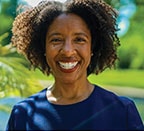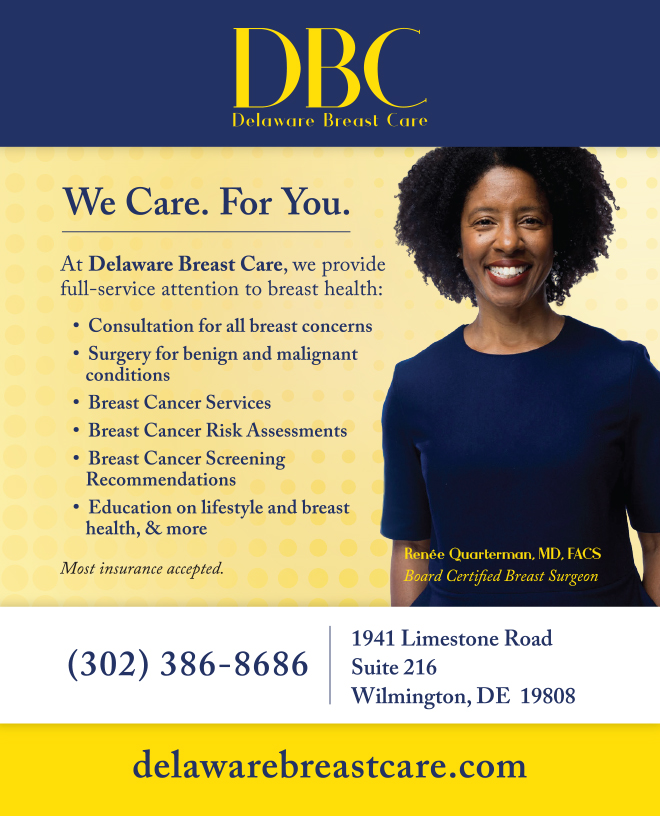Take The Breast Health & Disease Quiz:

By Renée L. Quarterman, MD, FACS
1.) True or False: 3D mammography is an experimental technique that is only available in a small number of places.
Answer: False. 3D mammography, or breast tomosynthesis, is the newest modality to image the breast, but it is not experimental. Like a CT scan, the tomosynthesis camera creates images in slices so that breast tissue can be looked at in much more detail. This is extremely helpful for women with dense breast tissue and in women where regular (2D) mammograms do not provide enough information.
2.) A woman has breast cancer. Which of the following family history details suggest that she may have a genetic mutation?
a. A sister with thyroid cancer
b. A mother with ovarian cancer
c. A brother with brain cancer
d. A father with pancreatic cancer
e. A sister with stomach cancer
f. A mother with uterine cancer
Answer: all of the above. A genetic mutation is an inherited trait that may increase a person’s risk for certain cancers. A family history of breast cancer and any of the other cancers listed suggest that a mutation may be present. Knowing your family history is important. Try to record who in the family had cancer, the type of cancer they had and the age at diagnosis.
3.) Which of the following diets has been shown to decrease the risk of breast cancer and decrease the risk of breast cancer recurrence?
a. The Mediterranean Diet
b. The Paleo Diet
c. The Keto Diet
d. The Grapefruit Diet
e. The Atkins Diet
Answer: a. This diet, characterized by foods such as olive oil, fresh produce, nuts, and seafood, has been studied for its effects on breast health. Not only does it reduce the risk of breast cancer; it reduces the risk of it coming back after treatment.
4.) You visit your friendly breast surgeon to talk about your risk for cancer. Which of the following things is important to relay?
a. Your father’s mother had ovarian cancer.
b. You smoke cigarettes.
c. You’ve been on combination hormone replacement therapy for 20 years.
d. You drink a glass of wine with dinner every night.
e. All of the above
Answer: e. If you’re seeing a physician to determine your risk of breast cancer, it’s important to detail your family’s health history. There are some family patterns that suggest a genetic mutation that you can be tested for. Your own medication history is important; some medications can affect your breast health. Lifestyle choices often play a significant role in general health, including your breast cancer risk.
5.) Breast magnetic resonance imaging (MRI) should be added for breast cancer screening if your breast cancer risk is greater than or equal to:
a. 50%
b. 75%
c. 20%
d. 5%
Answer: c. Women with a lifetime risk of 20% or greater are recommended for screening with mammogram and MRI.
6.) True or False: If your breast cancer risk is high, there’s nothing you can do about it.
Answer: False. Both lifestyle habits and medications can very effectively reduce breast cancer risk. A visit with a breast surgeon can provide education about things you can do to keep your breasts healthy.
7.) True or False: A woman on chemotherapy for breast cancer should add antioxidant supplements to her daily routine.
Answer: False. Chemotherapy works by damaging cells, and antioxidants prevent cell damage. A woman getting chemotherapy who loads up on antioxidants may not get the best effect from her cancer therapy. It’s important for her to review all of her medications and supplements with her cancer care team.
Would you like to talk about your breast health and find out what your breast cancer risk is?
Delaware Breast Care provides comprehensive care in a friendly, compassionate setting. Our CARES program (Conversation, Assessment, Risk calculation, Education, Surveillance) is the perfect way to get your breast health questions answered, find out your breast cancer risk and make a plan to maintain your breast health. Visit delawarebreastcare.com, call 302.386.8686 or email [email protected].
Bio
Dr. Quarterman is a board-certified surgeon dedicated to promoting and preserving breast health. Raised in Wilmington, Delaware, she attended Brown and Duke Universities.
Testimonial
“I give Dr. Quarterman the highest recommendation as a doctor, surgeon and person. I could not have had any better care.” ~ Marie P.


